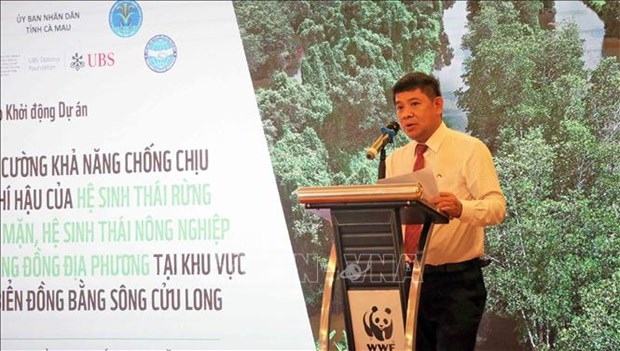WWF helps Mekong Delta localities with climate change adaptation
The World Wide Fund for Nature (WWF) and the Ca Mau provincial Union of Friendship Organisations on December 20 kick-started a project on improving climate resilience of mangrove and agro-ecosystems and communities in the coastal areas of the Mekong Delta.

CEO of WWF in Vietnam Van Ngoc Thinh said the project will enhance the protection and management of mangrove forests and adopt climate change adaptation practices in agriculture and aquaculture.
In the next three years, it targets planting new and adopting guidelines for the sustainable management of mangroves in combination with livelihoods for shrimp-forest and shrimp-rice models on more than 3,000ha, directly and indirectly benefiting nearly 8,000 farmers and 4,000 children in Bac Lieu’s Hong Dan district and Ca Mau’s Ngoc Hien district.
It will also support the planting of 60ha of new protective forests and increasing people's income by at least 1.2 times through piloting climate change adaptation livelihood models.
In order to achieve net zero emissions by 2050 as stated by Prime Minister Pham Minh Chinh at the 26th United Nations Climate Change Conference of Parties, the project will help Ca Mau and Bac Lieu with policies related to emission calculation, carbon sequestration capacity from forest plantation and protection forests and sustainable livelihoods, Thinh said.
Vice Chairman of the Ca Mau provincial People’s Committee Nguyen Minh Luan said since 2010, WWF has implemented four climate change adaptation projects in the province with a total aid of over VND25 billion, including two in 2022.
According to a research project of World Bank, Vietnam is among five countries hardest hit by climate change, particularly rising sea level. If the sea level rises one metre, about 12,300 sq km, or 31% of the Mekong Delta's land area, and 4.8 million people would be affected.
